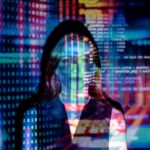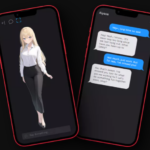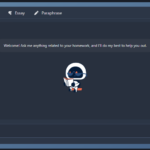You're navigating the exciting world of AI content creation, but have you considered the copyright issues?
From determining authorship to enforcing protection, AI's influence on copyright laws is complex. In this article, we'll explore four main challenges you may face and provide potential solutions.
Don't let legal uncertainties stifle your creativity. Let's dive in and arm you with the knowledge you need to create responsibly and confidently.
Key Takeaways
- AI content generation poses challenges to existing copyright laws
- Copyright laws need to be adapted to address AI's unique challenges
- Determining ownership of AI-generated content is a significant challenge
- Authorship attribution and infringement detection in AI content creation are complex issues
Understanding AI Content Generation
In your journey to comprehend AI content generation, it's crucial to understand that this technology involves the automated production of text, graphics, or other forms of content by artificial intelligence. With AI, you don't need to break a sweat to generate blog posts, social media updates, or even research reports. AI systems can analyze large amounts of data faster than a human, and they can create high-quality content based on that data. Imagine having a virtual assistant that doesn't get tired, doesn't need breaks, and can produce content around the clock!
But don't think that AI content generation is entirely autonomous. You're still in control. You set the parameters and guide the AI in the right direction. AI systems can't understand your brand voice or company culture without your input. They use algorithms to analyze your data and extract valuable insights, but you define what's valuable.
Understanding AI content generation also means acknowledging its limitations. While it's a powerful tool that can save you a significant amount of time, it won't replace your creativity and strategic mind. AI can't tell a compelling story from a human perspective or generate innovative ideas that disrupt the market. It's a tool, not a miracle worker.
AI's Impact on Copyright Laws
As we move forward, consider the potential for copyright infringement as AI generates content. How are our copyright laws adapting to this new frontier?
Who exactly owns the rights to AI-created content?
AI's Copyright Infringement Potential
With the rise of AI, you're likely to encounter significant changes in copyright laws due to its potential for infringement. As AI systems create content, the line blurs between original human authorship and machine-generated work. AI's ability to reproduce, remix, or even create original content can easily violate existing copyright laws.
You might wonder who's responsible for these infringements. Is it the AI, the developer, or the user? This ambiguity can make copyright infringement cases more complex.
Moreover, AI can sift through vast amounts of data and potentially use copyrighted material without detection. Therefore, it's crucial to adapt copyright laws to address AI's unique challenges, ensuring rights are protected while fostering innovation.
Copyright Laws' Adaptation
While you might be grappling with the complexities of AI's potential to infringe copyrights, it's also essential to understand how adapting copyright laws can help address these challenges.
Consider this:
- Modernization of copyright laws:
- Reviewing and updating the existing legislation to reflect the digital age and the role of AI in content creation.
- Rethinking the application of 'fair use' in the context of AI-generated content.
- Establishing clear guidelines:
- Determining who holds the copyright for AI-generated content – is it the developer, the user, or the AI itself?
- Defining what constitutes infringement in an era where AI can produce original content autonomously.
AI-Generated Content Ownership
In light of modernizing copyright laws, you'll find that determining the ownership of AI-generated content poses a significant challenge. As AI gains sophistication, it's creating content that's at times indistinguishable from human-produced material. This blurs the line of authorship. Who owns the copyright? The AI that created the content, the developer of the AI, or the user who initiated the process?
Current laws aren't equipped to handle this complexity. They've traditionally been based on human authorship, not algorithms. As a result, you're left navigating a legal gray area. It's clear that copyright laws need to evolve, incorporating the reality of AI's role in content creation.
Until then, you'll need to tread carefully in this uncharted territory.
First Copyright Challenge: Authorship Attribution
How do you determine authorship when AI is involved in content creation, especially considering current copyright laws? It's a complex question that's creating a lot of debate.
You see, copyright laws were created with human authors in mind, so how do we apply them to AI-generated content?
To answer this question, let's look at two potential ways to approach this issue:
- Assigning authorship to the AI
This approach would mean recognizing AI as an entity capable of holding rights. Some people argue that if AI creates the content, it should be recognized as the author. But, there's a problem: AI doesn't have legal personhood, meaning it can't own rights or be held accountable.
- Assigning authorship to the human involved
This could mean attributing authorship to the programmer who designed the AI or the user who utilizes it. However, it's not that simple. The programmer mightn't have directly influenced the content, and the user mightn't have contributed anything beyond initializing the AI.
So, you're caught in a tricky situation. Neither assigning authorship to the AI nor to a human seems completely fair or practical. It's a grey area that requires a lot of consideration and potentially new legislation.
Currently, there's no definitive solution, and it's one of the biggest challenges in AI copyright law right now. As AI continues to evolve, it's clear the issue of authorship attribution will have to be addressed sooner rather than later.
Second Copyright Challenge: Legal Protection of AI Creations
Navigating the murky waters of authorship attribution, you're now faced with the next pressing issue: safeguarding the legal rights of AI-generated content. As AI continues to churn out artistic, literary, and even scientific works, the question of who owns these creations is becoming more complex.
The law currently recognizes human creators for copyright protection. But what if a machine created the work? As it stands, AI-generated works don't fit into existing copyright frameworks. They're neither wholly created by a person, nor can they be attributed to an entity with legal personality.
You're likely wondering: Should an AI model's output be legally protected? And if so, who'd own the copyright? The developer who coded the AI? The user who provided the input data or the AI entity itself?
It's a minefield, isn't it? The current legal structure isn't equipped to handle these issues. It's high time for a re-evaluation. As we move further into the digital age, we need to rethink our laws and regulations to accommodate these technological advancements.
The second challenge, therefore, is to establish a legal framework that protects AI-generated content. This isn't just about safeguarding copyrights. It's about acknowledging the reality of AI's creative power and ensuring that it's used responsibly and ethically.
Third Copyright Challenge: Infringement Detection
Now, as you grapple with the legal protection of AI creations, a third challenge presents itself – detecting and handling copyright infringements in AI content creation. This task becomes even more arduous as AI's capability to create, replicate, and distribute content rapidly proliferates. Your effort to uphold the integrity and legality of AI-generated content might feel like looking for a needle in a haystack.
Herein, two particular facets of this challenge deserve your attention:
- Infringement Detection Mechanisms
- The complexity of AI-generated content demands sophisticated detection tools. You can't rely on traditional copyright infringement detection tools because they're not equipped to handle the intricacies of AI creations. Hence, you need to invest in advanced AI-driven tools that can effectively track, identify, and flag potential infringement instances.
- Also, these tools should be capable of distinguishing between legitimate instances of content reuse, such as fair use, and actual copyright infringements. This aspect is crucial to avoid false positives and unnecessary legal conflicts.
- Legal and Ethical Considerations
- As you venture into the use of AI for infringement detection, you must ensure that the methods employed are in line with legal and ethical standards. The use of AI shouldn't infringe upon privacy rights or result in unwarranted surveillance.
- Moreover, the actions taken post-detection must also be well within the boundaries of the law. You can't resort to draconian measures or unjust penalties.
In the face of these challenges, you need to tread carefully. Remember, the aim is to protect rights, not to create a surveillance state or stifle creativity.
Fourth Copyright Challenge: Copyright Enforcement
Now, let's tackle the fourth copyright challenge: copyright enforcement.
You'll explore various enforcement mechanisms and the challenges they present in the realm of AI content creation.
It's a complex terrain, but understanding it's crucial to protecting intellectual property in this rapidly evolving field.
Enforcement Mechanisms
In your journey to understand the fourth copyright challenge, you'll find that enforcement mechanisms play a critical role in copyright disputes involving AI content creation. These enforcement processes aren't just legal tools; they're safeguards that ensure the rights of creators are upheld in the AI realm.
Understanding the enforcement landscape involves two key areas:
- Legal Enforcement
- These are mainstream avenues like lawsuits and cease-and-desist orders. They're generally more formal and can involve hefty penalties.
- Platform-Level Enforcement
- These are mechanisms implemented by digital platforms themselves. They can include things like content takedowns, account suspensions, or algorithmic detection of potential infringements.
Challenges in Implementation
How can you effectively implement copyright enforcement in the complex world of AI content creation? It's a tough nut to crack, not least because AI algorithms can generate content at a rate that far outpaces human ability to monitor it.
You're dealing with a vast and rapidly evolving digital landscape, one that presents unique challenges. Existing copyright laws weren't written with AI in mind, so they often fall short. There's also the issue of jurisdiction: if an AI in one country infringes on the copyright of a work from another, who's responsible?
Moreover, detecting infringements can be like finding a needle in a haystack. Finally, even when infringements are detected, taking legal action can be costly and time-consuming.
Possible Solutions to Copyright Issues in AI
After tackling the complexities of copyright issues in AI content creation, it's time for you to explore potential solutions that can help navigate these legal obstacles. While there's no one-size-fits-all approach, certain strategies may prove beneficial.
Firstly, establishing clear regulations on AI-generated content is essential. While the current legal framework may work for human-authored content, it's ill-equipped for AI creations. Governments and legal bodies should take a proactive role in setting up rules that can offer a balance between promoting AI innovation and safeguarding original content.
In addition to this, collaboration between AI developers and content creators can also pave the way for fair use of copyrighted materials. Here's how such collaboration could look like:
- AI Developers:
- Engage in open dialogues with content creators to understand their concerns.
- Apply self-regulation by developing AI systems that respect copyright laws.
- Content Creators:
- Be open to collaborations with AI developers to ensure their works are protected.
- Advocate for clear laws and guidelines on AI-generated content.
Lastly, the adoption of advanced technologies such as blockchain can help in rights management, ensuring transparency and security in the use of copyrighted materials.
Frequently Asked Questions
How Can AI Content Creation Be Regulated on a Global Scale?
To regulate AI content creation globally, you'd need international cooperation.
First, establish unified global standards for AI-generated content.
Then, enforce these rules using technology that can detect AI-created content.
You'd also need legal frameworks to handle disputes and penalties for violations.
Lastly, remember that education plays a key role. Inform content creators about these regulations so they're aware of their responsibilities.
What Are the Ethical Implications of Ai-Generated Content?
You're dealing with several ethical implications when it comes to AI-generated content.
Firstly, there's the issue of authenticity: if AI is creating content, who's the real author?
Then, there's the potential for misuse. What if AI is used to spread misinformation or propaganda?
And of course, there's the concern about job displacement. Will AI replace human content creators?
Lastly, there's the question of privacy. Can AI infringe on personal privacy by generating content based on personal data?
Are There Any Benefits of AI Content Creation for Copyright Owners?
Certainly, there are benefits for copyright owners in AI content creation. You're able to generate new content quickly, efficiently, and in high volumes. AI can also assist in monitoring and managing your copyrighted materials online.
It's also capable of creating content variations that can broaden your copyright portfolio. However, you should remember that this also comes with potential legal and ethical considerations.
Is AI Capable of Creating Content That Infringes on the Copyright of Previously Published Works?
Yes, AI can potentially create content that infringes on copyright. If it's programmed to learn from existing works, it might inadvertently replicate elements. This raises complex legal questions about whether AI-generated content can violate copyright laws.
As a user, you'll need to ensure the AI is fed with diverse, non-copyrighted data to avoid issues. But remember, the field is evolving fast, and legal standards may change.
How Does AI Content Creation Impact Other Industries Apart From Publishing and EntertAInment?
AI content creation isn't just impacting publishing and entertainment. It's seeping into sectors like marketing, education, and even healthcare.
You see, AI can generate ad copy, lesson plans, or patient education materials, saving time and resources. But it's also raising new copyright questions. Who owns the rights to AI-generated content? And what happens if an AI inadvertently infringes on existing copyrights?
It's a complex landscape that's evolving rapidly.
Conclusion
So, you see, AI's impact on copyright laws is a complex issue.
Figuring out authorship, protecting AI creations, detecting infringements, and enforcing copyrights are all challenges we face.
But don't fret! Possible solutions are being explored.
The legal landscape has to evolve alongside AI.
Remember, understanding these issues is the first step towards addressing them.
Let's embrace this challenge, and navigate the ever-evolving world of AI together.
















